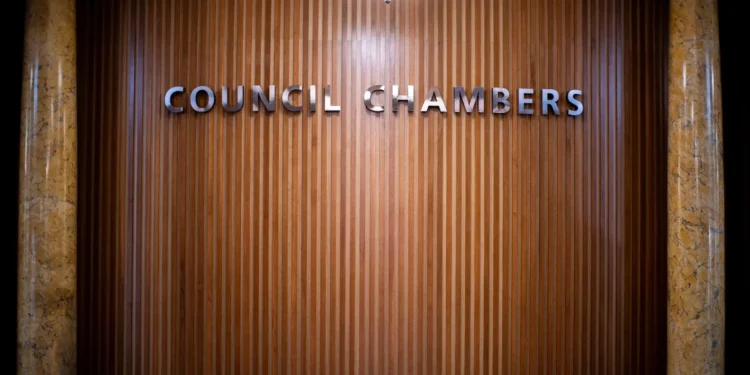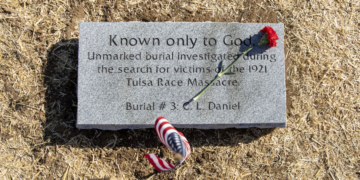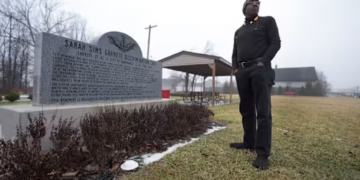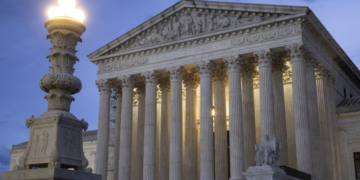May 31, 2025 Story by: Publisher
In a landmark decision addressing decades of systemic displacement, the City of Portland and its economic development agency, Prosper Portland, have agreed to a $2 million settlement with 26 Black residents and descendants of families uprooted during urban renewal projects in the Albina neighborhood during the 1960s and 1970s.
Acknowledging Historical Injustices
The settlement, pending approval by the Portland City Council, is one of the first in the nation to resolve a legal claim holding public agencies accountable for the discriminatory impacts of past redevelopment policies.
The plaintiffs, represented by the Emanuel Displaced Persons Association 2 (EDPA2), filed a federal civil rights lawsuit in 2022 against the city, Prosper Portland (formerly the Portland Development Commission), and Legacy Emanuel Hospital. The suit alleged decades of harm caused by policies that displaced hundreds of Black households from Central Albina through the 1970s.
“This settlement marks another step in Portland’s commitment to make sure future development bears no resemblance to decisions made 50-plus years ago,” Mayor Keith Wilson stated.
Terms of the Settlement
The agreement includes both financial compensation and symbolic acknowledgments of past harm:
- A $1 million payment each from the City and Prosper Portland to the plaintiffs.
- A curated display at Keller Auditorium, if it is renovated, recognizing the history of displacement.
- A 10-year hiring preference for descendants of displaced families for jobs at Keller Auditorium.
- Representation of at least two descendants on any Keller design committees.
- An annual “Descendants’ Day” with city support for community events.
- Letters of support for grant-funded documentaries about Central Albina for the next 10 years.
- The opportunity for plaintiffs to acquire up to two undeveloped lots from Prosper Portland at no cost.
- Free use of the Martin Luther King, Jr. Heritage Marker site for events up to four times a year.
Historical Context
The Albina neighborhood, once home to 80% of Portland’s Black population, faced extensive displacement due to urban renewal projects. In the 1960s and 1970s, the construction of Interstate 5 and the expansion of Legacy Emanuel Hospital led to the demolition of hundreds of homes and businesses, displacing Black families and eroding the community’s cultural fabric.
The lawsuit highlighted that these projects were executed under the guise of urban renewal but resulted in the loss of generational wealth and community cohesion for Black residents. Legacy Emanuel Hospital, originally named as a defendant, settled its portion of the lawsuit in late 2024 and was dismissed from the case earlier this year.
U.S. District Judge Michael H. Simon ruled in December 2023 that each of the descendants’ claims could proceed to trial and rejected the defendants’ motions to dismiss the suit.
The agreement with the city and Prosper Portland came after two settlement conferences last November before U.S. District Judge Adrienne Nelson and U.S. Magistrate Judge John V. Acosta, according to court records.
Community Response
Community members view the settlement as a significant step toward rectifying historical injustices. Jeffrey Davis, a long-time Albina resident, recalled, “This was preplanned over 45 to 50 years, I watched them knock down all the houses, but when I was that young, I didn’t know what was going on, it wasn’t right.”
Diane Nguyen, an attorney with Legal Aid Services of Oregon representing the plaintiffs, stated, “This settlement is a remarkable testament to EDPA2 and these 26 individuals’ commitment to honoring the dignity and hard work of their displaced elders, and to keeping alive a history that is as much a part of this city’s past as it is a part of its present.”
Looking Ahead
The settlement is pending approval by the Portland City Council, with a vote expected during the next council meeting. If approved, Portland will join cities like Palm Springs, California, in reaching settlements with families displaced by government-led redevelopment during the 20th century.
Efforts to restore and reinvest in the Albina neighborhood have gained momentum in recent years. In 2018, community groups began planning a redevelopment of the long-vacant Hill Block, once the heart of Portland’s Black business district.
Construction on the Williams & Russell project—featuring affordable rentals and townhomes—began in February under the guidance of Adre and Portland Community Reinvestment Initiatives. All housing will follow the city’s N/NE Preference Policy, prioritizing residents with generational ties to the area.
This settlement represents a meaningful step toward acknowledging and addressing the historical injustices faced by Portland’s Black community. While it cannot undo the past, it sets a precedent for restorative justice and community-led development moving forward.
Source: KXL / KATU / Oregon Live / Portland.gov / Seattle Times

















